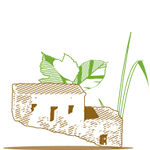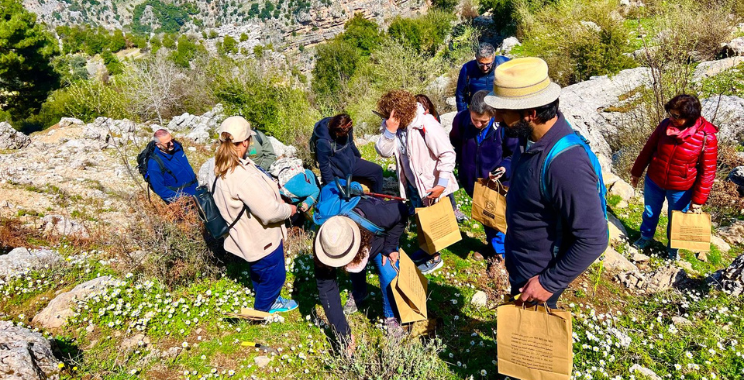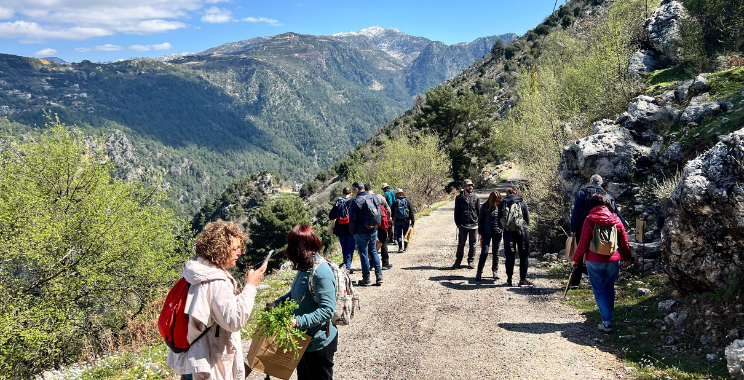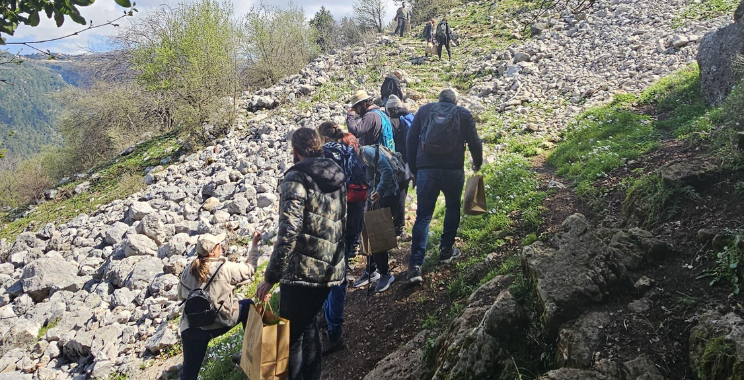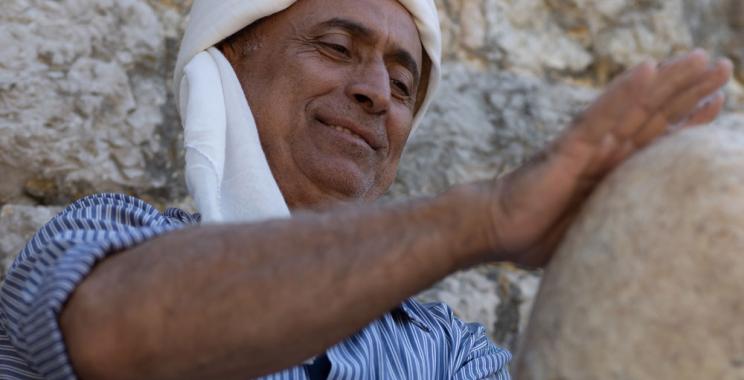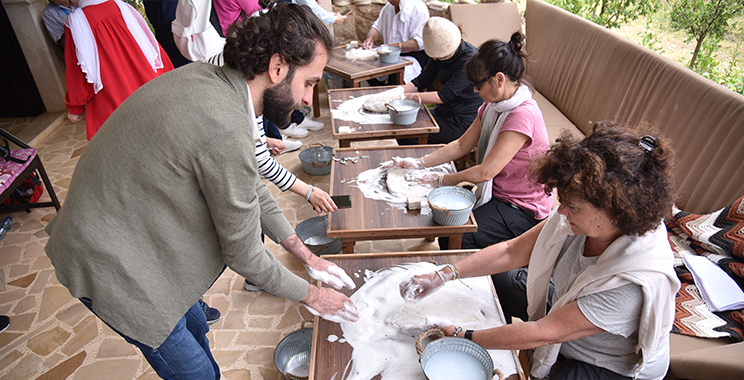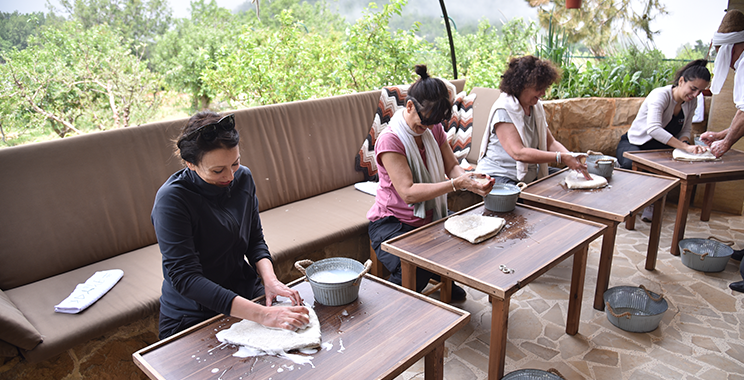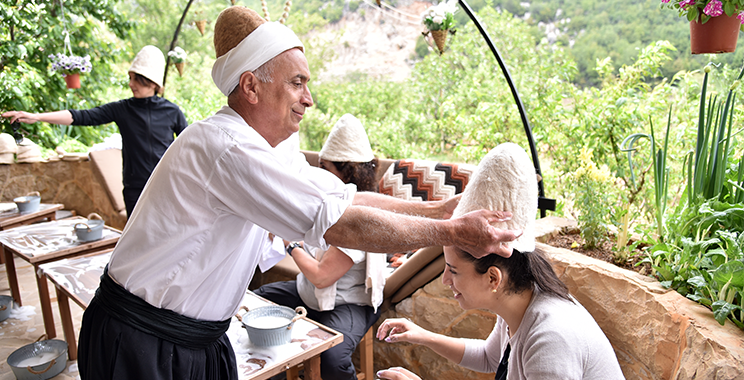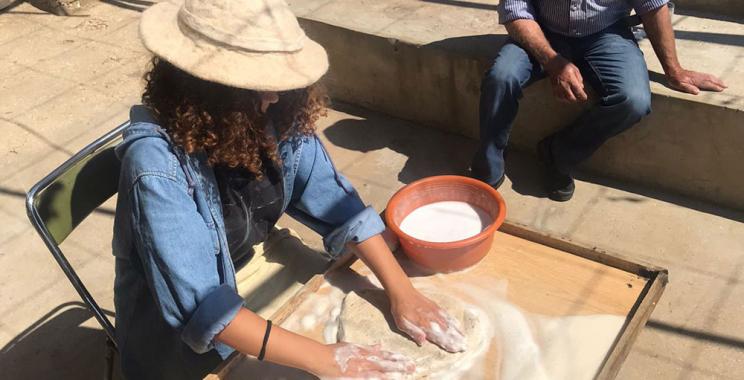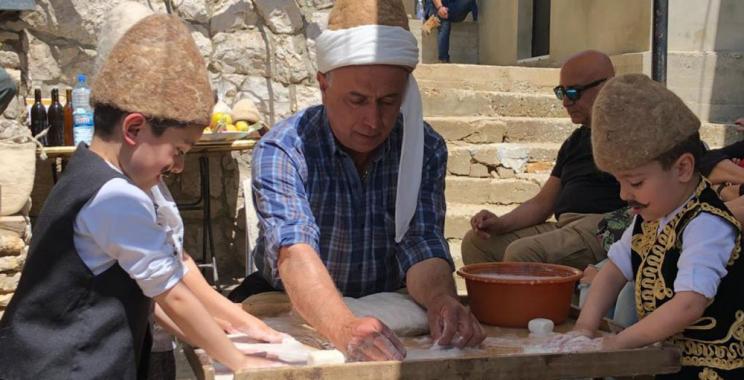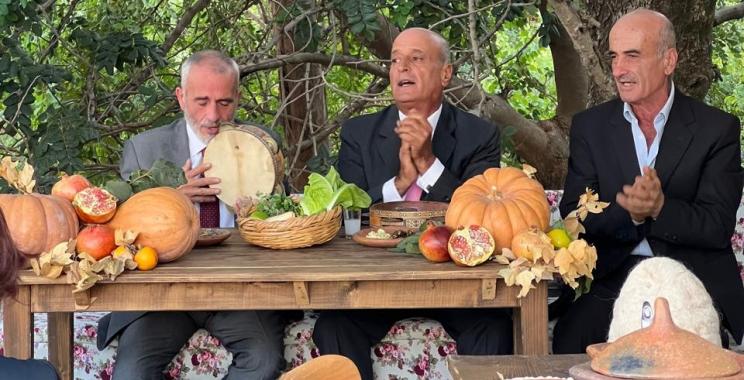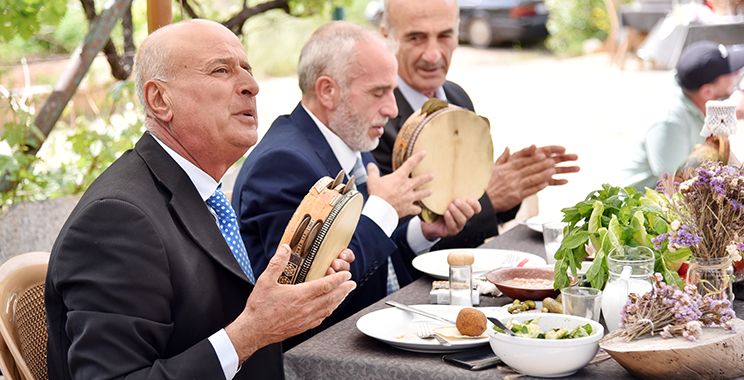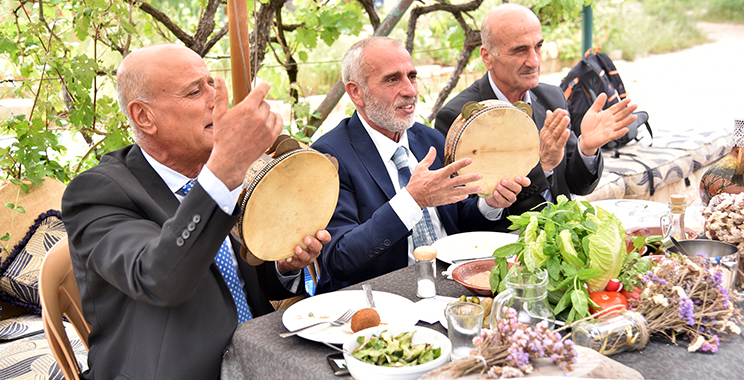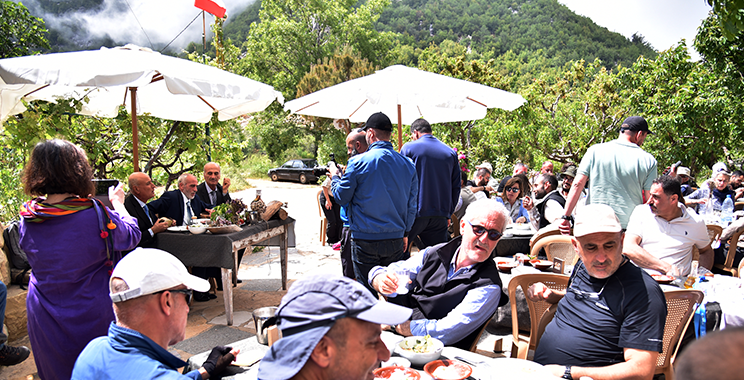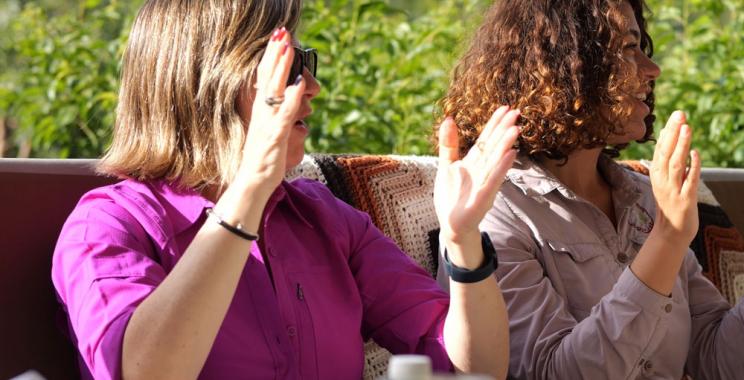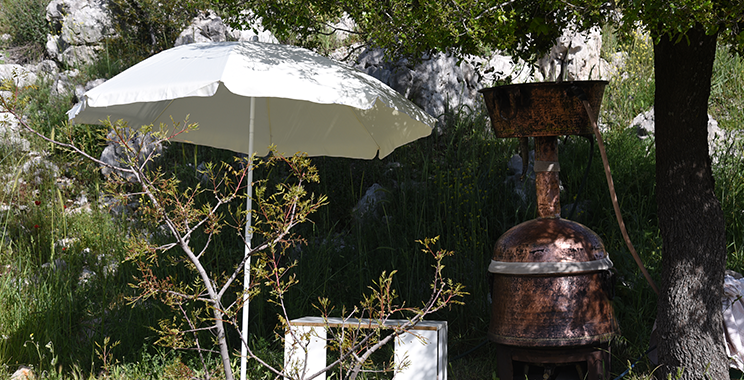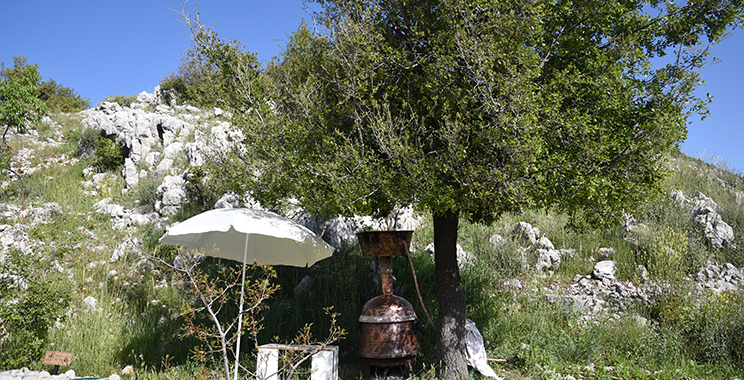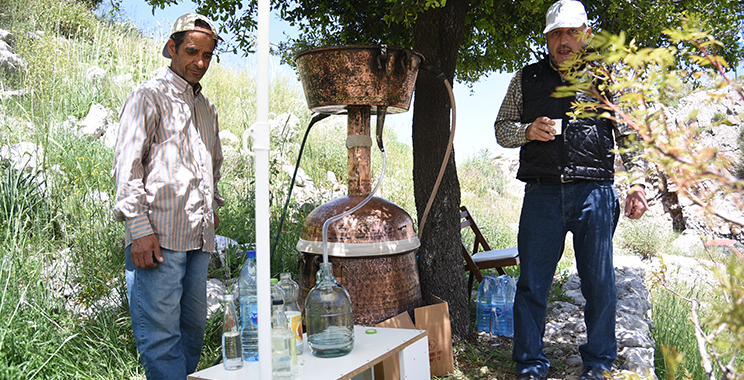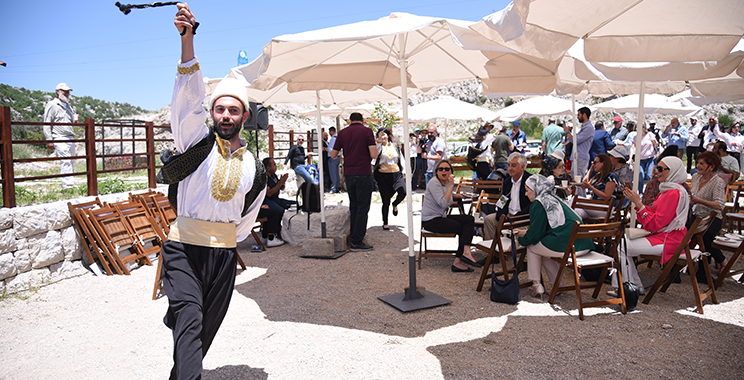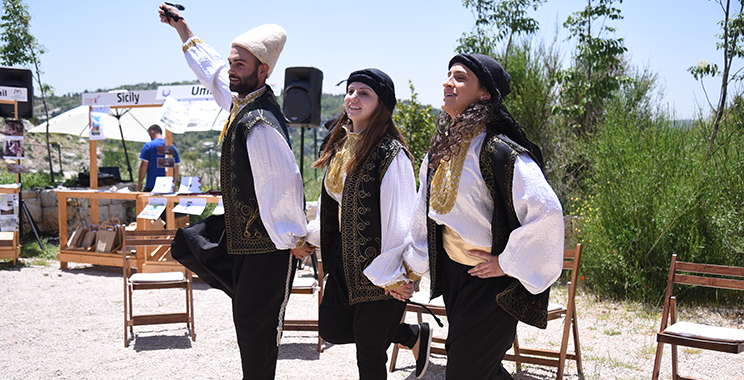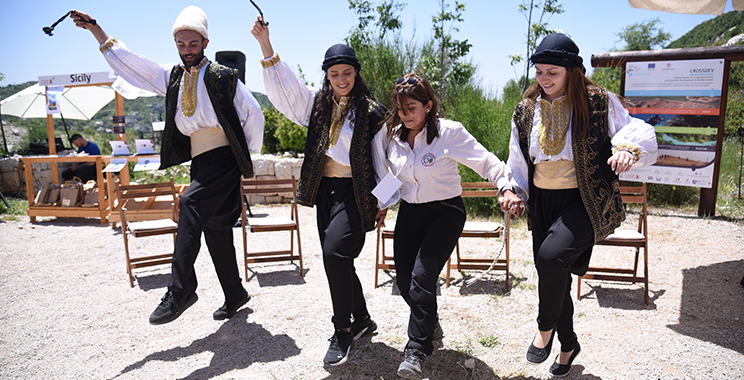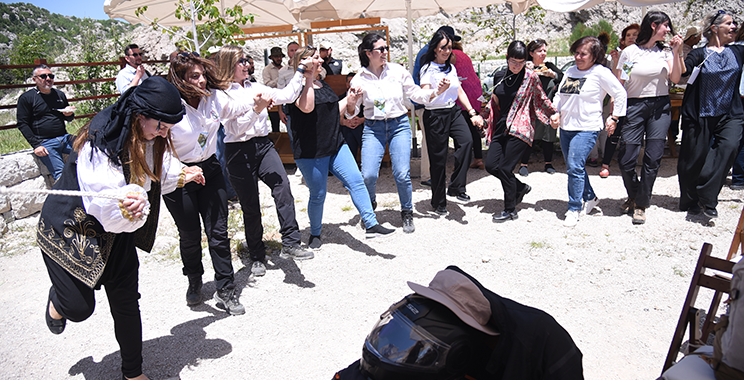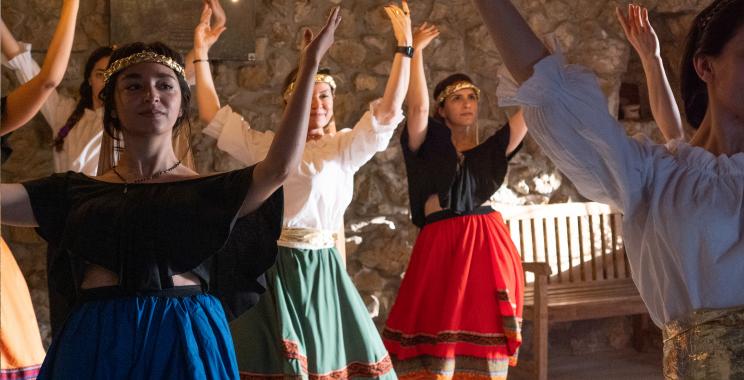Tesli2 - the art of harvesting wild edible plants
Experience the traditional practice of Tesli2 (wild harvesting of edible plants), a foraging activity deeply rooted in local culture. Accompanied by local experts, you will walk along one of Jabal Moussa’s trails and handpick a variety of wild edible plants, collectively known as sli2. Along the way, you will discover their traditional culinary and medicinal uses, and even repeat sayings passed down through generations, such as “طلع الشعشوع، راعي البقر ما بيجوع”. You'll encounter some favorites such as the Mokho B3ebbo - مخّو بعبّو, the many varieties of Hommeyda - حمّيضة, the distinctive Dweynet el jedi - دوينة الجدي, and the unique Cha3chou3 - شعشوع, each with its own story, character and flavor. The walk is followed by the preparation and tasting of traditional foods made of sli2.
This activity is best enjoyed during spring season.
Lebbedeh making: an endangered craft
A last remaining craftsman in Lebanon who possesses the traditional knowledge and skills required to make the iconic “Lebbedeh” headwear. This unique head covering, which has been worn by Lebanese men since the Phoenician period, is now on the verge of extinction.
About the process of felting involves mixing and compacting loose fibers of wool, and compressing them into a thick, durable fabric. The felting consists of adding gradually natural olive oil soap and water to the wool, and rubbing the dough-like mixture for more than half an hour, until it is shaped into a hat. Once done, the hat is left to dry naturally in the sun for one day.
"Zajal” in Jabal Moussa Biosphere Reserve
The Lebanese Zajal has been recognized as a UNESCO "Intangible Cultural Heritage" since 2014.
“Zajal” is an art of folk literature and a traditional form of Arabic poetry in the Lebanese dialect. It is semi-sung and is often improvised. It is typically performed in the format of a duel, or a debate between “zajjalin” (poets who improvise the zajal) to the rhythm of accompanying musical instruments, mainly the “daff” (tambourine) and sometimes the darbuka. The “zajjalin” are accompanied by the “Reddadi”, a chanting chorus who repeats key verses recited by the poets. In informal events, the audience itself takes on this role.
In Jabal Moussa, you are invited to be a “reddadi” and discover through the art of Zajal the “Myth of Adonis and Astarte”.
Karkeh making
Join a local villager in an authentic, hands-on experience to learn how Arak, Lebanon’s beloved traditional alcoholic drink is made using ancestral methods. Distilled from fermented grape juice and infused with aromatic crushed anise seeds, Arak is an important part of Lebanese social gatherings, usually served diluted with water and sipped slowly alongside food, laughter, and conversation.
The activity includes a demonstration of the distillation process inside a “Karkeh”, a traditional copper distillator. The process takes an entire day and involves three rounds of distillation.
You will also learn how to dilute and serve Arak the traditional way, and enjoy the experience even more when paired with a homemade local buffet, offered by a local guesthouse.
Dabke, dabke ya chabab
The Lebanese folkloric joyful dance called “Dabke” is danced in a line or a circle where dancers stomp their feet to the ground on the rhythm, holding hands, aligning shoulders, and repeating the synchronized movements following the music beats.
Originating from the Levantine region, Dabke is now danced across generations and borders. The Lebanese traditional Dabke has gathered many people for weddings, events, celebrations and has been representing a symbol of unity in Lebanon.
Join professional dancers and step into rhythm as you learn and perform the folkloric Dabke, dressed in traditional Lebanese attire. You don’t need to be a trained dancer to enjoy it; all it takes is a fun spirit, energy, and a sense of togetherness.
To book any activity, please call us in advance
 09 643 464
09 643 46471 944 405


